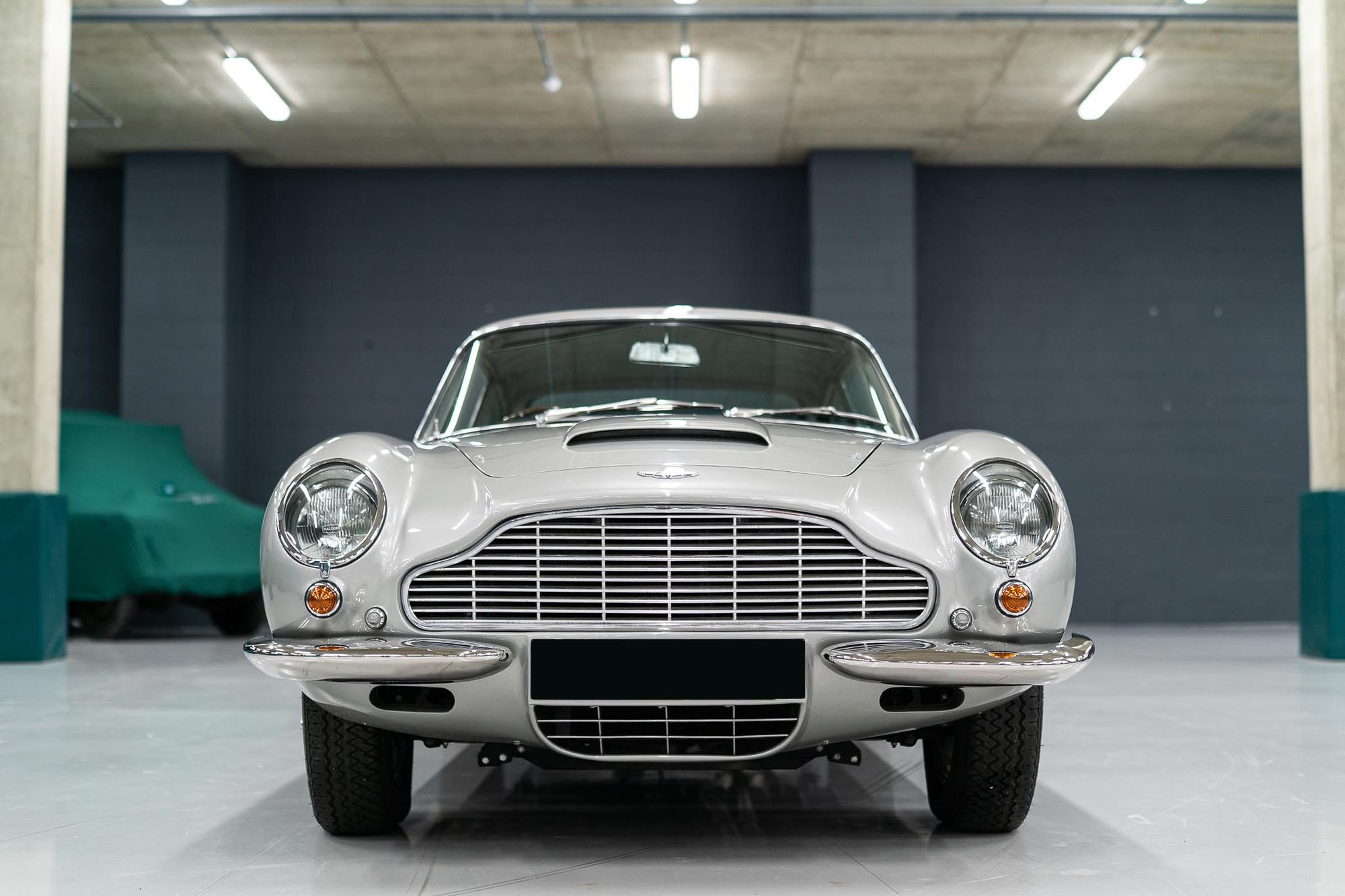Specification
Year
1966
Colour
Silver
Price
Sold
Description
RHD Aston Martin DB6 with manual transmission
1966 ASTON MARTIN DB6 SPORTS SALOON
REGISTRATION NO. NBY 929D
CHASSIS NO. DB6/2450/R
*Off the road 1984-2015
*Extensively restored between 2015 and 2018
*Fewer than 250 miles covered since completion
'Stage by stage, as the DB has become dominant in the Aston Martin strain, the successive cars have changed their image. Today the aim is to offer the maximum of luxury and refinement as well as the ultimate in road performance. The minor barbarities of so many great sports cars of the past are no longer acceptable – at least in the hand built models now leaving Newport Pagnell. Obviously such a car as the DB6 is expensive and exclusive but the value matches the price.' – Autocar, 1966.
The culmination of Aston Martin's long-running line of 'DB' six-cylinder sports saloons and thus considered by many to be the last 'real' Aston, the DB6 had been introduced in 1965, updating the DB5. Although recognisably related to the Touring-styled DB4 of 1958, the DB6 abandoned the Carrozzeria Touring-developed Superleggera body structure of its predecessors in favour of a conventional steel fabrication while retaining the aluminium outer panels.
Increased rear-seat space was the prime DB6 objective so the wheelbase was now 3¾" longer than before, resulting in an extensive re-style with more-raked windscreen, raised roofline and reshaped rear quarter windows. Opening front quarter lights made a reappearance but the major change was at the rear where a Kamm-style tail with spoiler improved the aerodynamics, greatly enhancing stability at high speeds. These many dimensional changes were integrated most successfully, the DB6's overall length increasing by only 2". Indeed, but for the distinctive Kamm tail one might easily mistake it for a DB5.
The Tadek Marek-designed six-cylinder engine had been enlarged to 3,995cc for the preceding DB5 and remained unchanged. Power output on triple SU carburettors was 282bhp, rising to 325bhp in Vantage specification, complete with triple Webers. Borg-Warner automatic transmission was offered alongside the standard ZF five-speed gearbox, and for the first time there was optional power-assisted steering.
Little is known of the early history of this Aston Martin DB6, other than DVLA records showing 1 previous keeper to the vendor who purchased the DB6 in Leytonstone, East London in 1981 from a motor dealer. He used the DB6 daily until being taken off the road in 1984, remaining laid up until 2015 when a major restoration commenced. Completed in 2018, this extensive rebuild is documented by invoices totalling £94,000 from Mega-Tech Engineering of Brandon, Suffolk for works carried out between February 2015 and February 2017, together with others for parts supplied by Aston Service Dorset to the value of £18,000. There are records to show that £4,000 was spend with LJ Harvey to ensure the paint work is up to Aston Martin standard. The DB6 comes with a photographic record of the restoration showing how structurally sound the car was after being completely stripped, requiring very little new metal.
Previously, in February 2006, the engine had been rebuilt by renowned marque specialists R S Williams Ltd; the dynamometer sheet records a maximum power output of 290bhp at 6,000rpm, with maximum torque of 295lb/ft at 4,500 revs. Other works carried out include fully rebuilding the transmission; installing a new wiring loom; re-trimming the seats and renewing the carpets (with soundproofing); and fitting a stainless steel exhaust system and MWS wire wheels.
It should be noted that the build sheet for the DB6 records it being ordered with automatic transmission but to the vendors knowledge has always been fitted with a five-speed manual gearbox, possibly fitted by the factory prior to delivery as all parts used are of Aston Martin origin. The restoration was completed by D Wood MotorSport at Aston Service Dorset, with bills on file totalling over £10,500, including carefully re-commisioning the engine, since when the car has covered fewer than 250 miles. The vendor comments that the DB6 remains in commensurately excellent condition.
The Aston's previous enthusiast owner, a mechanical engineer, had intended to use the DB6 once restored but felt that it was too good to use and moved it on. The vendor would like to express the sound nature of the car. Accompanying paperwork consists of an old-style logbook, a V5C registration document, and the aforementioned extensive restoration records and photographs.
























































































































